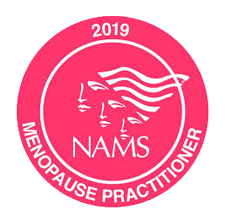Breast Cancer
The information provided in this section was adapted from a journal article written by Nancy Phillips, MD, titled “Female Sexual Dysfunction: Evaluation and Treatment” for the American Academy of Family Physicians.
The implications of breast cancer and its treatment for sexuality are both physiological and psycho-social. Each step, from diagnosis through treatment to follow-up, can have an adverse impact on sexual function. Each treatment, surgery, radiation, drug therapies, chemotherapy and follow-up, can produce specific sexual morbidities, as well as contribute to general fatigue and other physical symptoms.
With respect to direct physiological impact, chemotherapy has been shown in a number of studies to negatively impact sexual function among women being treated for breast cancer. Research suggests the long-term consequences of chemotherapy among women treated for breast cancer include reduced sexual desire, difficulty becoming aroused, and difficulty having an orgasm.
The effect of surgery on sexual function depends on the degree of conservations of breast tissue. The more conservative the surgery, the more likely the couple are to engage in breast caresses. Women who only have surgical treatment are more likely to return to the same coital frequency and ease of orgasm and satisfaction they had before cancer.
The effect of radiation treatment on the breast may result in loss of normal sensation of the breast, discoloration of the skin, thickening and fibrosis of the skin and range of motion difficulties to the shoulder and chest wall.
Treatment of breast cancer has more profound effects on premenopausal women because chemotherapy eliminates ovarian function, fertility, and causes menopausal side effects. A drop in estrogen production causes cessation of menses, hot flushes and vaginal dryness. The sexual consequences include loss of desire and arousability, as well as painful intercourse. Sexual consequences are often long lasting and related to treatment choices. The only two factors predictive of sexual outcomes are relationship function and chemotherapy as a choice of treatment. Multiple treatments have a cumulative effect on sexual morbidity and resumption of a normal sex life after therapy. Topical lubricants or local estrogen in the vagina may be recommended for the vaginal dryness.
There are several things health-care practitioners can do to help their patients with breast cancer avoid or minimize sexual difficulties. Proactively raising sexuality issues will, in itself, act as an encouragement for the patient to acknowledge the feelings she may have and continue to see herself as a sexual person. Research suggests that breast cancer patients appreciate having their practitioner raise sexuality issues and help them plan for intervention. In particular, practitioners should encourage communication with partners about concerns and anxieties that either partner may be having related to sexuality. In addition, the practitioner can make suggestions for enhancing sexual enjoyment (see below) including the use of lubricants (i.e. Replens, K-Y jelly, Astroglide) for relief of vaginal dryness.
In summary, the prognosis for the sexual relationship after cancer treatment includes pre-treatment levels of sexual function, treatment choices and number of treatments, the quality of the partner relationship, age at diagnosis and the partner’s response to diagnosis and treatment. The literature stresses the importance of early acknowledgement and counseling regarding the factors and success depends on the ability of a couple to communicate effectively, particularly about grief and self-image.
Contact Us
13126 120th Ave NE
Kirkland, WA 98034
Phone: (425) 398-9355
Fax: (833) 905-2316
Email: info@drserena.com
We serve patients Monday through Friday from 8 a.m. – 4:30 p.m.
COMPLETE THE FORM TO SEND US YOUR QUESTIONS OR COMMENTS
"*" indicates required fields




